Regular readers may remember me wondering, with so many factories started by ex-managers and the ex-blender of the Menghai Tea Co., who is actually left to work at Menghai? You can imagine my mirth when I recently received this tea from Royal Puer, to discover that Boyou* Factory was established in 2005 by... the former "Head of Fermentation" of Menghai (a certain Mr. Huang Anshun)...
This tea was entered in the competition of the 2007 Tea Culture Exhibition, held for the first time in Chengdu. I love Chengdu. If ever there were a city I would be happy to retire to in Mainland China, Chengdu is it: laid-back, pretty, with many tea-houses, and some lovely local teas (such as Emeishan's zhuyeqing). Plus the spiciest food on earth, real huoguo [napalm fondue].
At this competition, the tea allegedly received the "Silver Honour Certificate", as judged by none other than Haiwan (and ex-Menghai manager!), Mr. Zhou Bingliang. It is not certain that "silver honours" mean "second prize" - it sounds rather like a runners-up "honourable mention", but maybe it's not important. Suffice to say, Mr. Zhou thought that it was decent in some degree.
Let's find out what Mr. Zhou's taste in tea is like...
This tea was entered in the competition of the 2007 Tea Culture Exhibition, held for the first time in Chengdu. I love Chengdu. If ever there were a city I would be happy to retire to in Mainland China, Chengdu is it: laid-back, pretty, with many tea-houses, and some lovely local teas (such as Emeishan's zhuyeqing). Plus the spiciest food on earth, real huoguo [napalm fondue].
At this competition, the tea allegedly received the "Silver Honour Certificate", as judged by none other than Haiwan (and ex-Menghai manager!), Mr. Zhou Bingliang. It is not certain that "silver honours" mean "second prize" - it sounds rather like a runners-up "honourable mention", but maybe it's not important. Suffice to say, Mr. Zhou thought that it was decent in some degree.
Let's find out what Mr. Zhou's taste in tea is like...
The leaves are tiny, as you can see in the above photograph, and are insanely, immensely, intensely compressed. To say "tiebing" [iron cake] wouldn't really do justice to the leaf fusion that is occurring in this cake. It reminds me of "Dwarven bread", for those readers familiar with the works of Terry Pratchett. I hack out some chunks with a sharp pu'erdao.
Of note, and potential alarm, is the aroma of the dry leaves: solid, unremitting lucha [green tea]. Broken up and sitting rinsed in the pot, a more satisfactory aroma of sweet leathery goodness can be discerned.
Of note, and potential alarm, is the aroma of the dry leaves: solid, unremitting lucha [green tea]. Broken up and sitting rinsed in the pot, a more satisfactory aroma of sweet leathery goodness can be discerned.
The soup is dazzling yellow. This seems about as unprocessed as is possible to obtain. A long, sugary aroma - pure cane sugar - sits pleasantly in the wenxiangbei [aroma cup]. This really does smell particularly sweet.
This tea is lively, lively, lively - abundant energy causes effervescence on the tongue and lips, in concert with a tangible cooling sensation. The flavour is green pu'er, but excessively, inordinately, unfathomably sweet. Sweet! This tea really is very, very sweet.
It lasts many zillions of infusions, and sits in the throat quite well.
This tea is lively, lively, lively - abundant energy causes effervescence on the tongue and lips, in concert with a tangible cooling sensation. The flavour is green pu'er, but excessively, inordinately, unfathomably sweet. Sweet! This tea really is very, very sweet.
It lasts many zillions of infusions, and sits in the throat quite well.
The leaves are a right mess, evidence if any were needed that the manager of this factory is ex-Menghai. As you can see, they are uncompromisingly green. And that rock-hard compression...
I can see the pre-production meeting: "Let's get the maocha, mash it up, and press it using Ripley's robotic yellow loading device from Aliens."
I like this tea, very much in fact. It is sweet in the wild grassy manner of Belgian beer, and that is very definitely OK by me. Outrageously, bizarrely sweet - is that Manlushan terroire, I wonder.
This tea is also rather inexpensive, weighing in at a decent £15.
* "Boyou" could mean "Doctor friend". Perhaps this is a "scholar tea"! Grnngrhhgrhgnnn.
I can see the pre-production meeting: "Let's get the maocha, mash it up, and press it using Ripley's robotic yellow loading device from Aliens."
I like this tea, very much in fact. It is sweet in the wild grassy manner of Belgian beer, and that is very definitely OK by me. Outrageously, bizarrely sweet - is that Manlushan terroire, I wonder.
This tea is also rather inexpensive, weighing in at a decent £15.
* "Boyou" could mean "Doctor friend". Perhaps this is a "scholar tea"! Grnngrhhgrhgnnn.
Addendum
November, 2011
I bought these cakes quite inexpensively, in 2008, when they were a year old. They went for a little over US$20 at the time, from Yunnan Sourcing, and came in this rather unusual box:
I make it a rule never to buy tea that comes in novel packaging, because it's usually rubbish tea. However, rules were made to be broken, and, on this occasion, it seems that it was a good decision.
The box arrived at my office, where I promptly left it for a few months, before bringing it home, and putting it at the back of a shelf under a stack of other cakes. It has remained there ever since, entirely unremembered.
One thing that I didn't quite appreciate before was the extreme nature of the compression. Even for a "tiebing" [tee-air bing, iron cake], which has undergone hydraulic compression, this is a dense cake. It is very thin, as you may see below...
Naturally, at this point, I am expecting it not to have aged a great deal. After all, England isn't the warmest place on earth. However, the leaves have already changed colour - I was surprised to see that they have darkened and reddened in their time on my shelves:
You will also, by now, have noticed the small size of the leaves. Scott (of Yunnan Sourcing) notes that the trees of Mengsong area are known for their small leaves, due to cross-breeding that occurred some centuries ago. Manlushan is within this area, on the border with Burma - a strategically useful location, historically speaking, but now, more happily, a decent area for tea.
I am genuinely surprised, and delighted, by this cake. After all, it has little going for it, on paper: it was inexpensive, it is unlikely to have aged, and it has lived in a small box for some years. The result is well on its way to adolescence: the soup has darkened to orange (which I invite you to compare to the colour obtained during my 2008 session, shown above).
Most importantly, it tastes excellent. It is very dense, with a hard, sweet kernel of potency that marches on in the throat for a long time. Its base is smooth, elegant tobacco (not a rustic, Xiaguan- or Douji-style tobacco), which sits underneath floral characteristics that derive from its sweetness.
To pile surprise upon surprise, I note that this is available (at the time of writing) for just US$26 at Yunnan Sourcing, where its price has, presumably, remained almost constant. I encourage you to try a sample of this powerful, sweet, yet complex little fellow that really does deliver more than you would expect for such a humble price, and which has sufficient content to do well in the coming years.
Addendum
November, 2013
This is now up to $35, from its original $20 in 2008. Where once the soup was yellowish, it is now heavy orange. The tight tiebing [iron cake] compression means that it takes an infusion to get going as the leaves separate. It is strong, with a good core of Dayi-style sweetness. I begin to wonder if it has pesticide: the acute cooling sensation on the tip of the tongue is very noticeable. Perhaps I should try it again, to be sure...

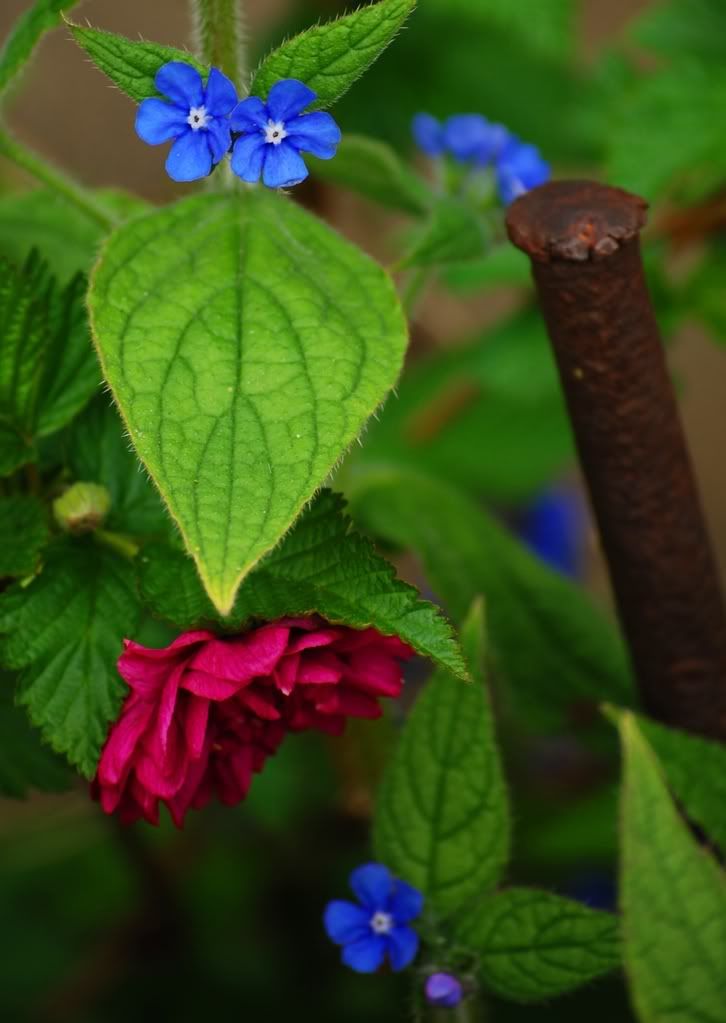
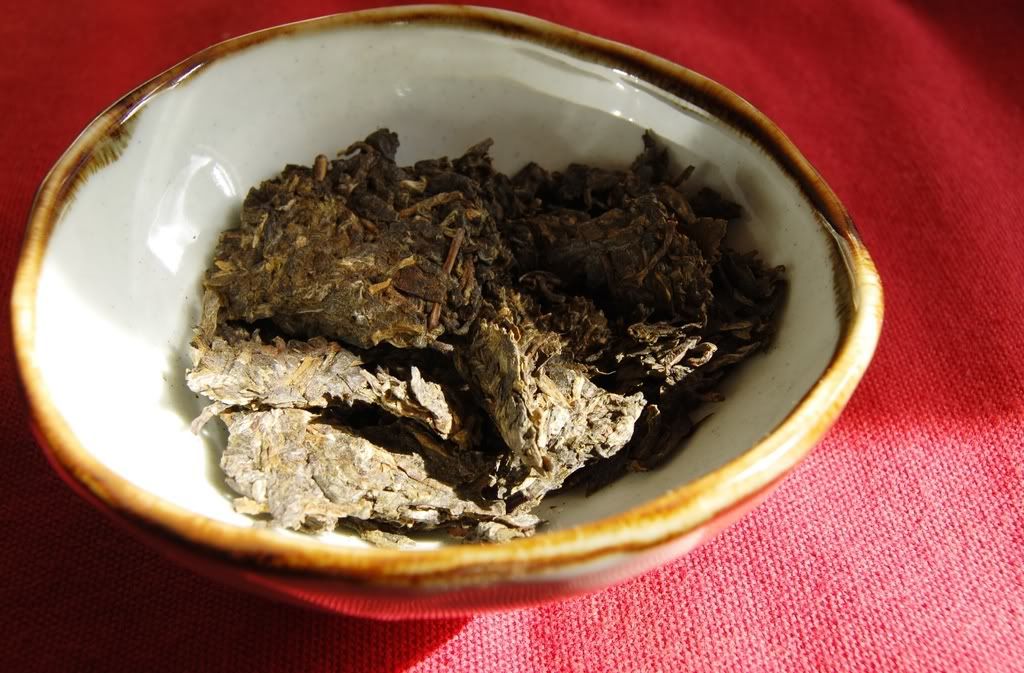


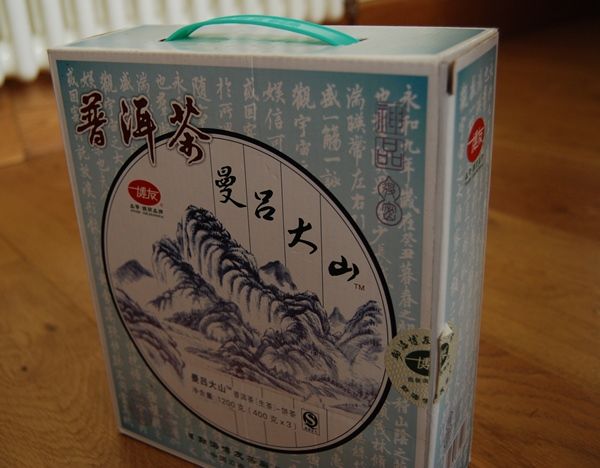
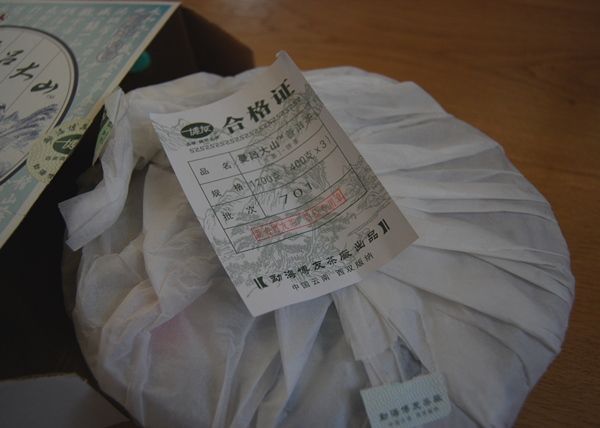
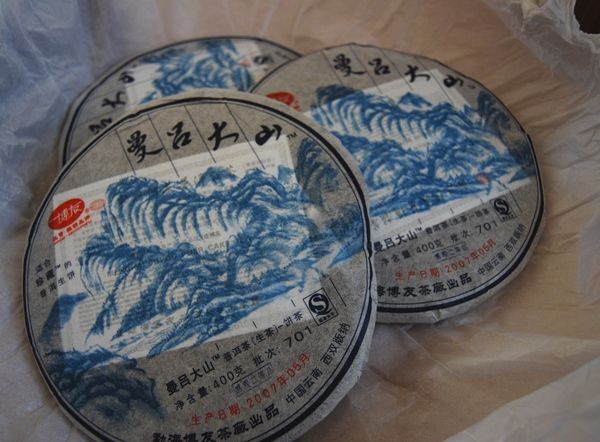
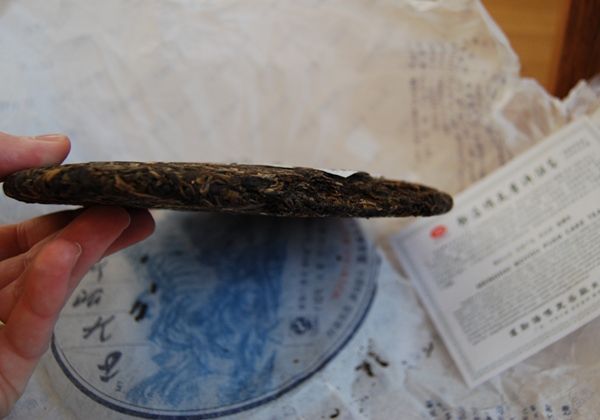
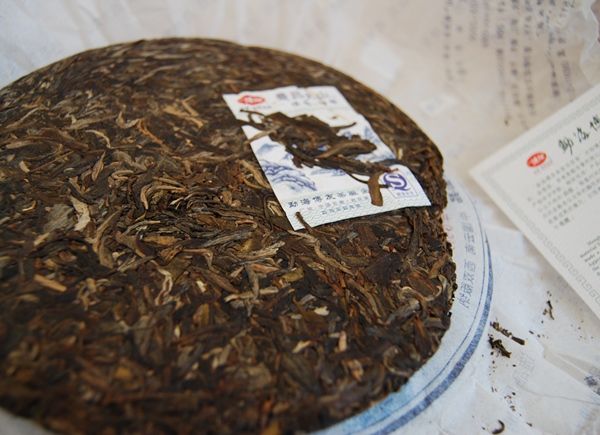
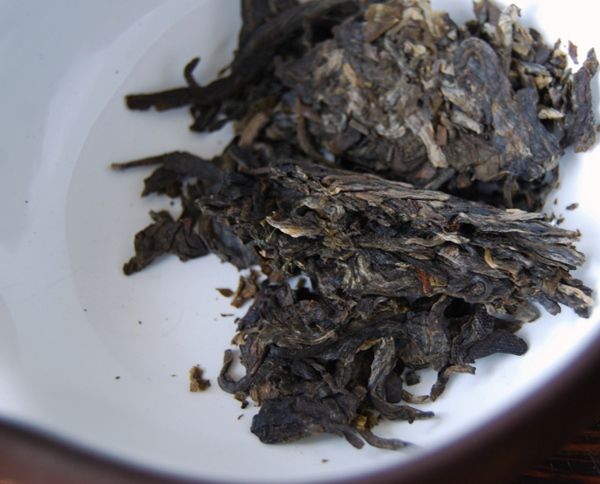
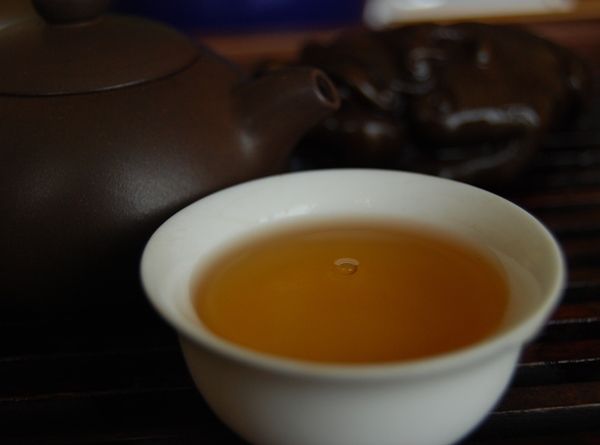
6 comments:
Yo sir, just when you are talking about how nice Chengdu can be, the city was shaken by a huge earthquake. It is sad that all nice places are plagued with either natural or man-made disasters. :(
--Seb
Dear Seb,
That's terrible, I just caught the news. 9,000 confirmed dead, the epicentre just 60 miles north-west of Chengdu.
* "Boyou" means "Doctor friend". ????
My understanding of 'Bo' does not associate it with a doctor, rather it means 'vast'. It means 'a lots of friends'. Chinese can be tricky to interprete.
I was told Boyou's ripe tea is on par with the best of Menghai, however I was never convinced.
Jim
Puerhshop
Dear Jim,
Thanks for the note. You're right about it being tricky to translate. Bo2 does mean "extensive", but is the primary character for "bo2shi4", of course. I'll ask my wife about your translation - I'd love to know which meaning the Boyou Factory intended. She's biassed towards boshi, because I call her that occasionally. :)
Toodlepip,
Hobbes
P.s. I'd not heard about Boyou's shupu, thank you for the pointer. I tend to drink almost no new shupu, simply because we've accumulated quite a lot of it from my wife's hometown. I'll take a peek.
The tea looks interesting thanks for the read.
Dear tea,
It is interesting! A good price. Glad you liked the article.
Toodlepip,
Hobbes
Post a Comment